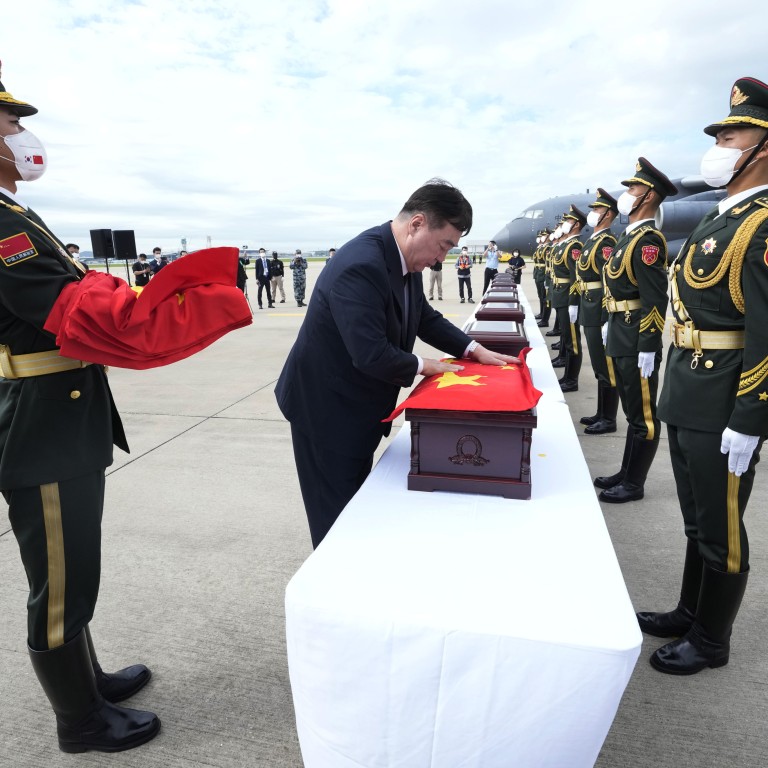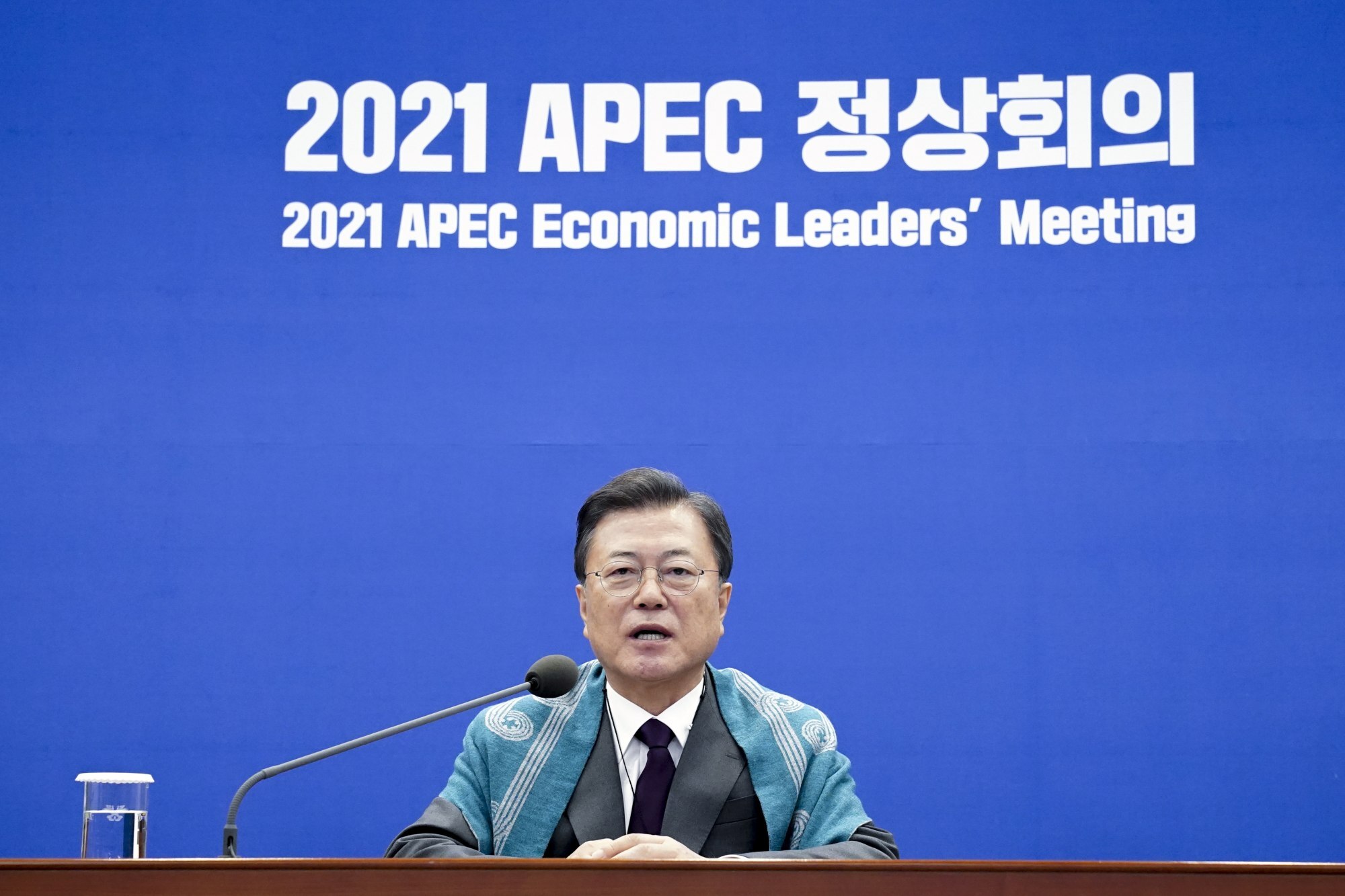
China should be part of process to formally end Korean war, envoy says
- Ambassador Xing Haiming says China keeps ‘open attitude’ on South Korean president’s push for a declaration
- Beijing has backed the proposal unveiled in September despite ambivalence from Pyongyang and resistance from Washington
China must be involved in talks on a declaration to formally end the Korean war, its top envoy to South Korea said, again voicing Beijing’s support for Seoul’s proposal.
While Beijing has over the years publicly backed efforts for an agreement to end the conflict – something Pyongyang is ambivalent about and Washington has resisted – it has seldom clarified its own role in the process.
But as a country involved in the conflict and one of the parties to the 1953 Korean Armistice Agreement, China should be consulted on efforts to push for peace talks and declare a formal end to the Korean war, he said.
In another interview last month with Korea JoongAng Daily, Xing described Moon’s initiative as a “stepping stone” towards permanent peace on the Korean peninsula and said China “cannot be left out of any process to reach an end-of-war declaration or peace treaty”.

The two Koreas are technically still at war nearly 70 years after the conflict, which ended in stalemate and an armistice signed by the US-led United Nations Command, China and North Korea.
With just a few months before the South Korean presidential election in spring, Moon appears keen to secure an end-of-war declaration – a step before a peace treaty – as his legacy, according to observers.
Zhang Liangui, an expert on North Korea at the Central Party School in Beijing, said it would make little sense to exclude China from the process, both legally and historically speaking, because the country took part in the war. “And I don’t think that – without China’s involvement – any such efforts could succeed,” he said.
But given repeated provocations from Pyongyang, he said it was unlikely a declaration would materialise.
“I doubt if it’s the right time to push for such a symbolic move, to end the Korean war, based on the reactions from both the US and North Korea,” Zhang said. “Apart from the fact that Moon is preoccupied with his own political considerations, an end-of-war declaration has many serious ramifications and may give North Korea and others further excuses to question the presence of US forces in South Korea.”
The sun is setting on Moon’s hopes for inter-Korean peace
Bruce Klingner, a senior fellow at the Heritage Foundation in Washington, said Moon’s pursuit of conciliatory gestures towards North Korea and an end-of-war declaration could create “a false sense of security”.
He noted that Washington had effectively rejected Seoul’s proposal without the inclusion of reciprocal actions from Pyongyang in a broad denuclearisation accord.
“Equating a simplistic peace declaration to actually securing peace could generate a domino-effect advocacy for prematurely signing a peace treaty, reducing US deterrence and defence capabilities, ending combined US-South Korean military exercises, removing US forces from South Korea, and abrogating the Mutual Defence Treaty before reducing the North Korean threat that necessitated American involvement in the first place,” Klingner said on the think tank’s website.

